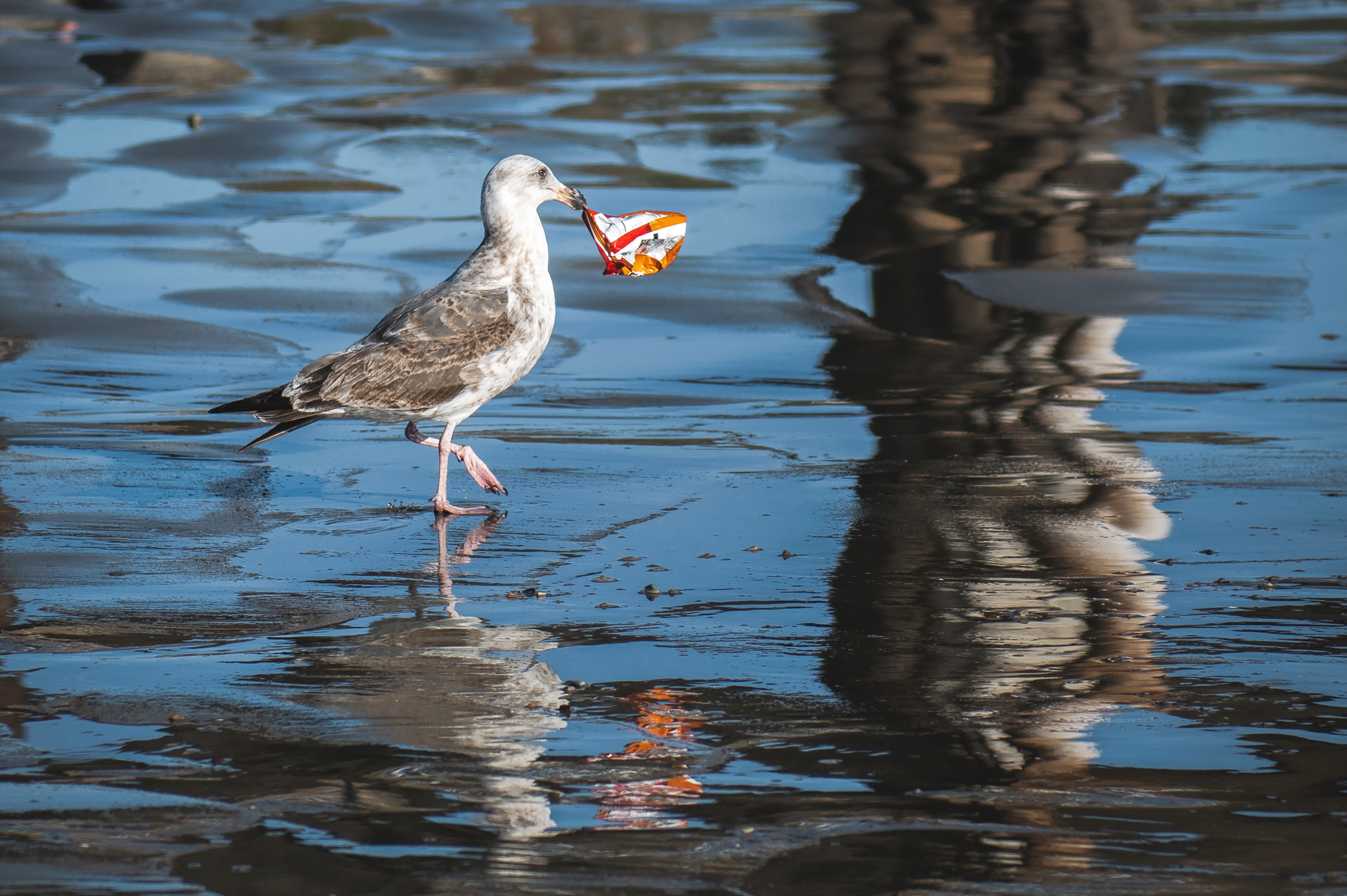
Welcome to our Plastic Pollution in Rhode Island blog series! You can read Part One here and Part Two here.
In the last two blog posts, we talked about plastic pollution and the toll it takes on the environment. In Rhode Island, Narragansett Bay has a lot of plastic pollution. Senator Sheldon Whitehouse has introduced a bill in Congress to combat the problem. The legislation is called the Reduce Act: Rewarding Efforts to Decrease UnRecycled Contaminants in Ecosystems (Whitehouse Unveils REDUCE Act to Tackle Plastic Pollution).
The bill would impose a 20-cent-per-pound fee on the sale of virgin plastic to manufacturers. Virgin plastic is new plastic rather than recycled plastic. The purpose of the fee is to increase the sale of recycled plastics rather than purchasing new plastic. There are 100 major virgin plastic distributors and they make up for 90 percent of single-use plastic waste; this bill is a great start to combatting single-use plastic in Rhode Island and across the country.
In a report, Senator Whitehouse said, “Plastic pollution chokes our oceans, hastens climate change, and threatens people’s well-being. On its own, the plastics industry has done far too little to address the damage its products cause, so this bill gives the market a stronger incentive toward less plastic waste and more recycled plastic” (Whitehouse Unveils REDUCE Act to Tackle Plastic Pollution). Senator Whitehouse is working to assign the true cost of plastic production to where it belongs: the manufacturer.
The money that the tax raises will be directed into a Plastic Waste Reduction Fund where it will be used for plastic waste reduction and recycling efforts. This includes: improving recycling infrastructure, working on marine debris reduction, detection and monitoring, and cleanup activities. The goal is to not only halt sales of virgin plastic and heighten recycled plastic, but to use the money towards sourcing trash and recycling reduction strategies.
Tackling the problem of plastic pollution is important because it doesn’t just sit on the surface of water. It gets transformed into micro-plastics that are consumed by fish which are then consumed by humans. In order to get plastics out of the ocean, we have to start somewhere. Placing a tax on virgin plastic will hold manufacturers responsible instead of the consumer. It will also heighten the use of recycled plastic or other materials like glass and paper. This bill is a great start for reducing the demand for single-use plastics.
The REDUCE act is the stepping stone we need. Clean Water Action is advocating that revenue collected from the free should go towards source reduction activities like providing technical assistance to local governments, businesses, institutions, organizations, and communities working on projects and policies to incentivize reuse and refill. Clean Water Action is also pushing for one or two things: a reduced tax rate for non-single-use products made from virgin resins or clear definitions explaining what products are single-use and which are not. Join Clean Water Action in eliminating the problem at the source. Join our email list to stay involved!
Related Posts
Stay Informed
Get the latest updates and actions:
Thanks for signing up!
There was a problem processing your signup. Please try again.


